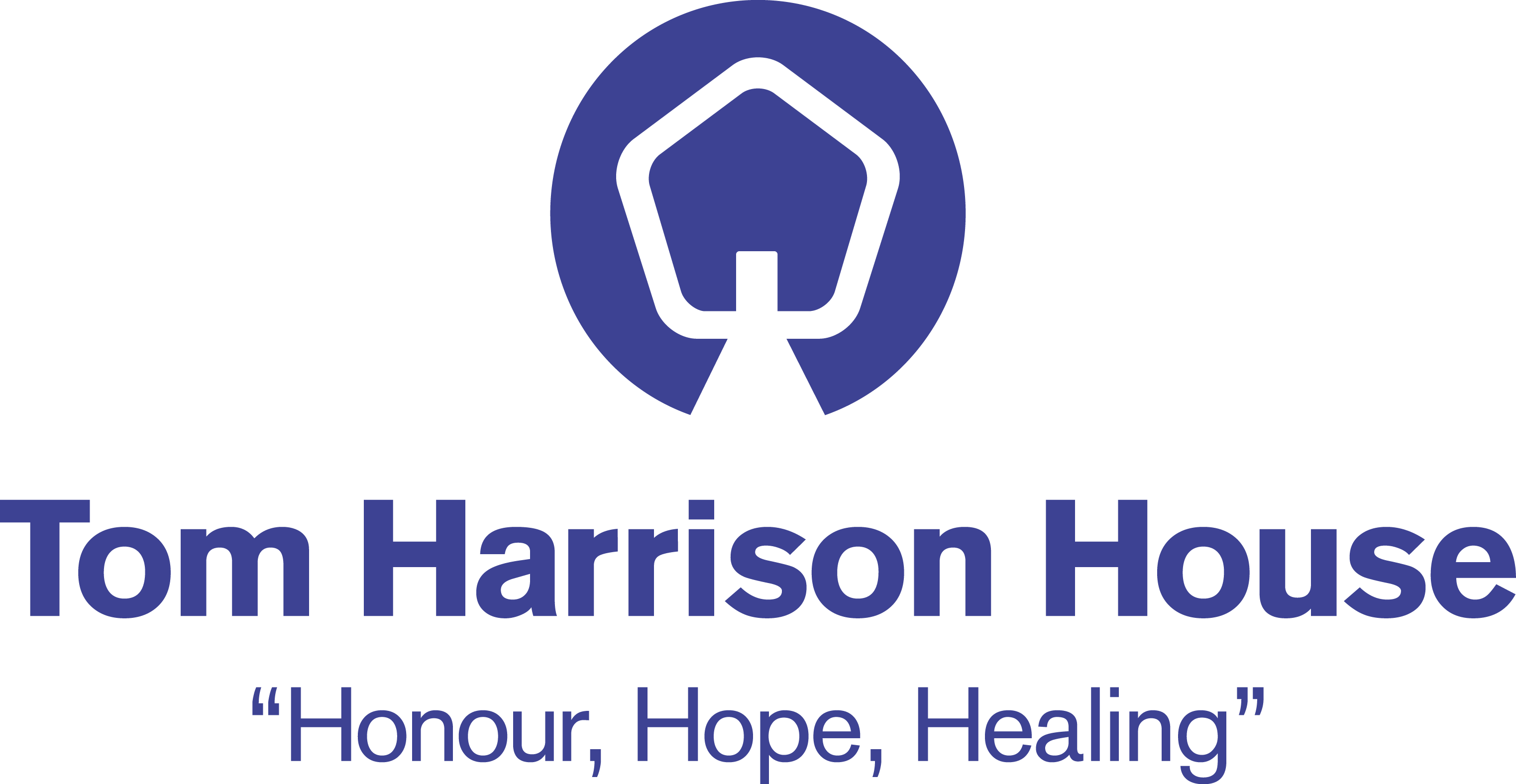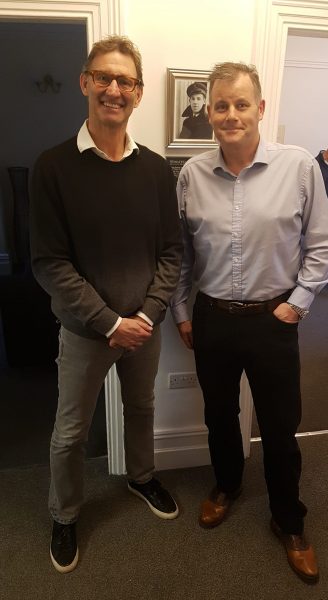The following blog has been written by Dougie Dunsmore-Dawson, who works with Tom Harrison House. Dougie has worked in the addiction treatment sector for over 20 years.
My name is Dougie Dunsmore-Dawson and I have been working in the addiction treatment sector for over 20 years. By placing beneficiaries at the heart of service provision, its been my privilege to successfully deliver difficult and challenging projects in both community and prison settings.
I was first introduced to the amazing work of Tom Harrison House (THH) when I was asked by its CEO and founder, Paula Gunn, to support treatment delivery whilst facilitating an organisational review of the project, and then to lead the team through any subsequent changes. This process started in late February 2019 and gave me an incredible opportunity to truly understand the inner workings of THH’s military focused addiction recovery programme. THH took on its first client in July 2014 and has since grown into the leading provider of residential addiction recovery that is exclusive to military veterans, reservists, emergency personnel, and their families.
This has enabled THH to learn a lot about the specific needs of their ex-forces’ client group who, following their service, struggle to adapt to civilian life. Having joined at an early age, many are institutionalised so lack the necessary life skills when they leave and soon become very isolated.
This was affirmed by a former colleague, Nick Wood, with whom I had delivered substance abuse treatment within the prison system. Nick, a Falklands veteran, has developed and delivers a powerful short course for York St John University entitled ‘The Military Human: Understanding Military Culture and Transition’.
The team also saw beneficiaries that started their military service with pre-existing addictions, but for others addiction had developed as coping mechanism for their experience of PTSD and injury. Many have significant mental health problems, anger issues, debt, housing problems, and unemployment. For example, 34% of beneficiaries have had spells of homelessness and 67% have been to prison. Their relationships with family have fractured. In most cases, they have made several attempts to join mainstream drug and alcohol services. However, these are designed for the general population and beneficiaries have found them ill-equipped to support people with military and combat experience. There is also a wealth of external research which shows the extent to which addiction is prevalent within THH’s target group:
Alcohol misuse is a common issue in the UK Armed Forces (Hooper et al., 2008; Cucciare et al., 2013; Leo et al., 2014) and the health implications of excessive alcohol consumption are significant (Aguirre et al., 2014; Fear et al., 2010; Department-of-Health, 2012)
64.3% of men and 49.4% of women from the armed forces report hazardous drinking compared to 33.2% of men and 15.7% of women in the general population (Thandi et al., 2015)
THH provides trauma-informed addiction therapy through a “sensory and wellbeing” model of care, support, therapy and education. The primary programme runs over a 12-week period and includes a diverse range of recovery-focused activities and therapeutic groups, as well as individual sessions and family work. The project also provides supported accommodation for the programme duration in dedicated recovery houses. Programme elements include personal recovery planning, assignment groups, interpersonal group therapy and reintegration work alongside equine therapy, art, nutrition, physical fitness, yoga and mindfulness.
One of the key tenets of THH’s intensive programme is behaviour change and most of the beneficiaries present with challenging behaviours, usually within the early weeks of their treatment episode. However, they have all undertaken a thorough assessment / induction process where they make an explicit commitment and sign up to a treatment contract, specific to their issues, and which clearly outlines the boundaries of their therapy. The programme’s military ethos and strong sense of camaraderie ensures individual buy in and compliance to their original commitment. So, when a beneficiary acts out in a particularly challenging way, the strong ‘therapeutic container’ created by both staff and peers alike, holds that man and helps him process and integrate his difficult underlying emotions. THH’s various group work sessions are essential for addressing these underlying behavioural issues and enabling transformation through challenge, validation and belonging.
During the project’s review I facilitated several consultation sessions which always involved a wide mix of programme graduates, volunteers, staff and trustees. One such session, in which we explored the values of the charity, stands out and remains vivid in my memory, because it cemented the core principle of honour and shaped the mission statement. Towards the end of that day after more than an hour of exploration, where we had reviewed numerous corporate mission statements and appraised countless permutations describing THH’s principles and values, a recent programme graduate tentatively spoke out saying “We’re veterans healing through honour and hope”.
Simple stuff really!
The review proved the catalyst for a thorough refresh of the addiction recovery programme helping to establish a robust interpersonal group therapy model together with comprehensive assignment work that is fully bespoke to the ex-forces’ beneficiaries.
Like all providers in this sector, the impacts of covid19 have proved extremely challenging and the team had to adapt very quickly to deliver a wide range of new approaches / ways of working in order to keep clients, graduates and second stage residents safe and fully engaged in their respective treatment / recovery programmes throughout this ongoing pandemic. It has been an inspiration to see so many veterans coming in, moving through and moving on with their recoveries – top work by staff and beneficiaries alike, who have embraced remote and flexible working.
Currently my primary task is a wide-ranging review of THH’s funding strategy in readiness for the imminent changes ahead, most significantly from Liverpool City Council who have suffered badly since 2010 due to the Government’s austerity drive. It now has £436m less to spend each year in real terms than it did in 2010 – equivalent to a 63% cut. This has had a devastating effect on essential services and THH have been told to expect a significant funding reduction imminently, probably by more than half. Such a drop in financing would likely prove terminal for the charity, so considerable efforts are being made to secure alternative funding sources, principally from local authorities and the NHS but also from regimental organisations as well as national veterans’ charities.
As the only rehab of its kind in the UK, I am keen to emphasise the importance of its work, however this is far better articulated by one of its many beneficiaries, which can be found here.


















